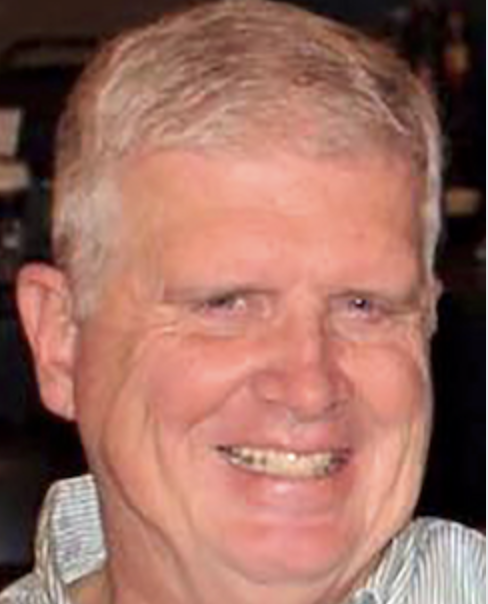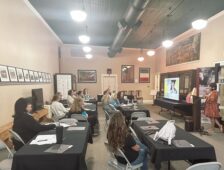By CHIP WARREN
Do you remember your first job? Oh, we all mowed lawns and babysat as young teens, but I am referring to that job in which you worked for someone else and received an actual paycheck.
My first job was during the summer after I had just started driving. There were hundreds of people under me. I will refer back to that job later in this article.
Work is a big part of our lives in terms of the amount of time it requires. Unfortunately, many people don’t like their jobs - some would even say they hate their jobs.
They don’t particularly like the people they work with day in and day out. Work is just nine to five to get a paycheck. They can’t wait for the weekend, and then on Sunday night that dread of going back to work comes over them like a dark cloud.
On the other hand, there are those who love their work. They have the attitude that no human being should be allowed to have that much fun. They almost feel guilty for being paid for doing something they enjoy so much.
They like being around the people they work with every day. Their work is very fulfilling and gives them a sense of accomplishment.
Some of you know that I enjoy “The Andy Griffith Show.” Some of the cast members who have been interviewed over the years told of how much they loved working with each other and how much fun they had performing the various scenes.
I think this fact is evident, especially for the first five years when Don Knotts was on the show. And behind the scenes they had lots of fun too. (See photo.)
It has been reported that Frances Bavier, who played Aunt Bea, and Andy did not get along. That just goes to show that every workplace has similar situations. Remember that if there is someone at your work who has a problem with you, they have a problem with other people and themselves too.
Which of these two categories would you fall into?
Let’s see if we cannot get a Christian perspective on work. Let’s begin with these excerpts from “Our Secular Vocation” by J. Daryl Charles:
“The tragic reality is that few people see their daily work as connected to the purposes of God and as a means by which to flourish.” page 59
“Since work is participation or coopetition in God’s purpose and activity in the created order, it has intrinsic ethical value of its own.” page 3
Notice that he said we need to see daily work as connected to the purposes of God. I submit that so many do not even have the purposes of God on their radar.
Without understanding why God made us and why he put us on earth, work can be just one of those things in life we have to do - a drudgery for most - just to be able to afford to live.
My late mother-in-law was an artist. In fact, she was a very good artist. Over her kitchen sink hung a wooden plaque she had painted with a Bible verse:
“Whatever you do, work at it with all your heart, as working for the Lord and not for men, since you know that you will receive an inheritance from the Lord as a reward.” Colossians 3:23-24
As a homemaker, that plaque was a reminder to her that whatever she did was as unto the Lord.
Whatever your vocational calling in life, work at it with all your heart as unto the Lord and not unto men. If you have not been doing this, try it and watch how things change.
All believers have a vocational calling. That calling may be carried out in various occupations, and even when one retires from his occupation, his vocational calling continues until he is physically and mentally unable to fulfill that calling.
Some in the church have the mistaken idea that a vocational calling is only for pastors and missionaries. We are indeed grateful for those who have answered that call. No doubt there are many who have been called, but have not heeded the call.
Speaking as one who was called to church vocational ministry at age 16, I believe that God also calls people to be teachers, doctors, carpenters, homemakers, bakers and candlestick makers. And that calling is just as much a vocational calling as those called to be pastors and missionaries.
Is it not time for the church to recognize these callings and commission them just as we do pastors and missionaries? Do they not enter the mission field every day they enter the work place?
“So, I saw that there is nothing better for a man than to enjoy his work, because that is his lot.” Ecclesiastes 3:22.
Have you figured out what I did as a 16-year-old with hundreds of people under me as I mentioned above? Was I a junior executive or did I work in cemetery? I will give the answer next time.
Chip Warren is the past president of the Albertville Ministerial Fellowship.





